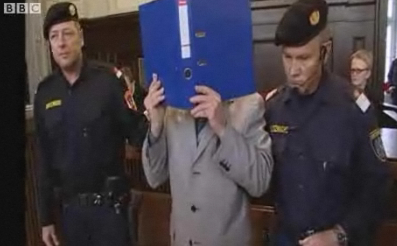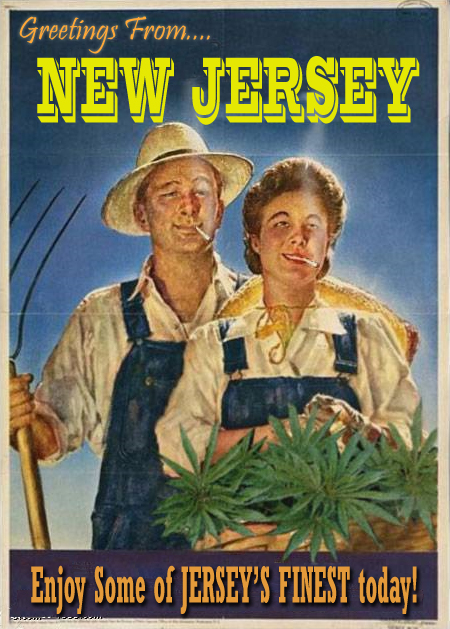RAMPAGE: Husband Kills Wife, Boyfriend, Family, Then Self
 A Miami man upset by his estranged wife’s affair with a younger man intruded on a party early Sunday and killed her, the woman’s daughter, grandmother and boyfriend. Before cops could catch up to him, police said, he set his home and truck on fire, then shot himself. Detectives on Sunday afternoon were piecing together the carnage of what marked the second high-profile murder-suicide in three weeks in Miami-Dade County. Last month, a South Miami-Dade man killed his wife and two teenage daughters before killing himself. The shooting began shortly after midnight Saturday when Lopez barged into a party at a duplex near Coral Gables. Fifteen family members and friends had gathered to celebrate the 27th birthday of the male victim, according to Miami homicide detective Sgt. Ervens Ford. From behind the duplex at the 2852 SW 38th Court, neighbor Santos Estrada said he heard a woman shouting ”`You’re crazy!”’ and “`What are you doing here?”’ A man told the woman to shut up, said Estrada, who then heard 8 to 10 shots fired. Then a pause, followed by the sound of more bullets. A video recorded by another neighbor captured the sound of 27 gunshots in all. Lopez jumped into a 2006 red Ford Tacoma parked at the end of the block and drove off. Lopez sped to his duplex, in the 700 block of Southwest 33rd Avenue, in Little Havana. There, he set his truck on fire. And then, his house. As the place burned, he shot himself. [via MIAMI HERALD]
A Miami man upset by his estranged wife’s affair with a younger man intruded on a party early Sunday and killed her, the woman’s daughter, grandmother and boyfriend. Before cops could catch up to him, police said, he set his home and truck on fire, then shot himself. Detectives on Sunday afternoon were piecing together the carnage of what marked the second high-profile murder-suicide in three weeks in Miami-Dade County. Last month, a South Miami-Dade man killed his wife and two teenage daughters before killing himself. The shooting began shortly after midnight Saturday when Lopez barged into a party at a duplex near Coral Gables. Fifteen family members and friends had gathered to celebrate the 27th birthday of the male victim, according to Miami homicide detective Sgt. Ervens Ford. From behind the duplex at the 2852 SW 38th Court, neighbor Santos Estrada said he heard a woman shouting ”`You’re crazy!”’ and “`What are you doing here?”’ A man told the woman to shut up, said Estrada, who then heard 8 to 10 shots fired. Then a pause, followed by the sound of more bullets. A video recorded by another neighbor captured the sound of 27 gunshots in all. Lopez jumped into a 2006 red Ford Tacoma parked at the end of the block and drove off. Lopez sped to his duplex, in the 700 block of Southwest 33rd Avenue, in Little Havana. There, he set his truck on fire. And then, his house. As the place burned, he shot himself. [via MIAMI HERALD]
MONSTER DAD: Trial Begins In Austrian Incest Sex Slave Horror
 The trial has begun of Josef Fritzl, the Austrian man accused of holding his daughter captive for 24 years and fathering seven children with her. TV pictures showed the 73-year-old entering the courtroom with his face concealed by a blue file. He refused to answer questions from journalists. He faces charges of rape, incest, coercion, enslavement and deprivation of liberty. He is also accused of the murder of one of his daughter’s children. The case, seen as one of the biggest in recent Austrian history, is attracting intense media interest. Escorted by six policemen and dressed in a grey suit, Mr Fritzl made the short walk down the corridor from his cell to the courtroom, where journalists tried unsuccessfully to question him before the judges arrived. Speaking in a weak voice, Mr Fritzl gave the judges his name and other personal details. An estimated 200 journalists are in the town of St Poelten for the trial. However, fewer than 100 were allowed inside the courthouse, and camera crews and photographers were told by judges to leave shortly after the trial started. Mr Fritzl put down the blue folder only after they had gone, Reuters news agency reported. [via BBC]
The trial has begun of Josef Fritzl, the Austrian man accused of holding his daughter captive for 24 years and fathering seven children with her. TV pictures showed the 73-year-old entering the courtroom with his face concealed by a blue file. He refused to answer questions from journalists. He faces charges of rape, incest, coercion, enslavement and deprivation of liberty. He is also accused of the murder of one of his daughter’s children. The case, seen as one of the biggest in recent Austrian history, is attracting intense media interest. Escorted by six policemen and dressed in a grey suit, Mr Fritzl made the short walk down the corridor from his cell to the courtroom, where journalists tried unsuccessfully to question him before the judges arrived. Speaking in a weak voice, Mr Fritzl gave the judges his name and other personal details. An estimated 200 journalists are in the town of St Poelten for the trial. However, fewer than 100 were allowed inside the courthouse, and camera crews and photographers were told by judges to leave shortly after the trial started. Mr Fritzl put down the blue folder only after they had gone, Reuters news agency reported. [via BBC]
Will The New Depression Trigger The Repeal Of The New Prohibition?
 In 1977, President Jimmy Carter asked Congress to decriminalize marijuana possession (it never did). The next year, the Ladies Home Journal described a summer jazz festival on the White House’s South Lawn where “a haze of marijuana smoke hung heavy under the low-bending branches of a magnolia tree.” The late 1970’s may have been the high-water mark for permissiveness regarding marijuana. But advocates of decriminalized pot believe a confluence of factors, especially the country’s economic malaise, are leading to another countrywide reappraisal of the drug. “There is momentum of the sort I haven’t seen since I’ve been involved in this,” says Ethan Nadelmann, executive director of the New York-based Drug Policy Alliance, which supports easing marijuana laws. He says incidents like then-candidate Barack Obama’s early admission of pot use or the flap over Olympic swimmer Michael Phelps’s bong-smoking may lead to initial public hand-wringing, but in the end they tend to legitimize pot use. So does the growing recognition of medical marijuana. But, he adds, “the economic crisis is the single most important factor” in this new shift in perceptions. That’s because the ailing economy is triggering a scramble for new government savings or sources of revenue. Nadelmann compares today’s marijuana laws to alcohol prohibition, approved during prosperous times in 1920 only to become unpopular during the Great Depression. Prohibition was finally repealed in 1933, in part due to the cost of reining in illegal booze and the need to recoup lost tax revenue in tough economic times. As he signed a law easing prohibition, President Franklin Roosevelt reportedly quipped, “I think this would be a good time for a beer.” [via ALTERNET]
In 1977, President Jimmy Carter asked Congress to decriminalize marijuana possession (it never did). The next year, the Ladies Home Journal described a summer jazz festival on the White House’s South Lawn where “a haze of marijuana smoke hung heavy under the low-bending branches of a magnolia tree.” The late 1970’s may have been the high-water mark for permissiveness regarding marijuana. But advocates of decriminalized pot believe a confluence of factors, especially the country’s economic malaise, are leading to another countrywide reappraisal of the drug. “There is momentum of the sort I haven’t seen since I’ve been involved in this,” says Ethan Nadelmann, executive director of the New York-based Drug Policy Alliance, which supports easing marijuana laws. He says incidents like then-candidate Barack Obama’s early admission of pot use or the flap over Olympic swimmer Michael Phelps’s bong-smoking may lead to initial public hand-wringing, but in the end they tend to legitimize pot use. So does the growing recognition of medical marijuana. But, he adds, “the economic crisis is the single most important factor” in this new shift in perceptions. That’s because the ailing economy is triggering a scramble for new government savings or sources of revenue. Nadelmann compares today’s marijuana laws to alcohol prohibition, approved during prosperous times in 1920 only to become unpopular during the Great Depression. Prohibition was finally repealed in 1933, in part due to the cost of reining in illegal booze and the need to recoup lost tax revenue in tough economic times. As he signed a law easing prohibition, President Franklin Roosevelt reportedly quipped, “I think this would be a good time for a beer.” [via ALTERNET]
